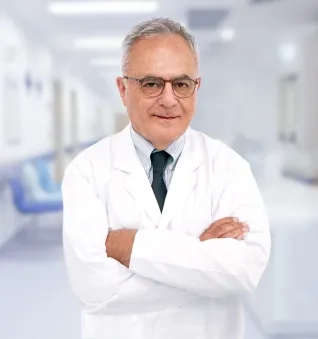Alo Yeditepe
Alo Yeditepe
What is DMD Disease? Symptoms and Treatment
What is Duchenne Muscular Dystrophy (DMD) Disease?
DMD disease is seen only in boys. In the early stages, it may cause difficulty in walking, running and speaking. The most important thing for early diagnosis is to identify mothers carrying this disease. In this way, children can be prevented from being born with diseases.
Department of Pediatrics and Child Neurology, Lecturer Prof. Dr. Haluk TOPALOĞLU stated that Duchenne Muscular Dystrophy (DMD) is a progressive muscle disease seen in boys and shared important information about the symptoms, causes and treatment of the disease.
What Causes Duchenne Muscular Dystrophy (DMD)?
Prof. Dr. TOPALOĞLU listed the reasons for the emergence of DMD disease, which can be seen in every society, regardless of social environment, educational level or geography, as follows: "The gene that causes the disease is located on the X chromosome. While this gene affects only men and causes the disease, women become carriers. Approximately half of the boys with DMD get the disease due to the transfer of this gene from the mother who has a break in the X chromosome. In the other half, this genetic break occurs only in the child and it is not possible for either the mother or the father to be a carrier. "There is also Becker MD (BMD) disease, which is a milder form of DMD."
Who Gets Duchenne Muscular Dystrophy (DMD)?
Stating that DMD can be seen in every layer of society because it is a genetic disease, our expert said, "The social environment, educational level or geography has no effect on the emergence of this disease. DMD is seen approximately in every 4 thousand 600-5 thousand boys. It is rarely seen in girls." "There may also be severe symptoms, but they generally do not have any difficulties with the disease," he said.
What are the symptoms of Duchenne Muscular Dystrophy (DMD) Disease?
Regarding the symptoms of DMD, our expert said: "Almost all boys with DMD start walking late. Normally, they are expected to walk at 12-15 months, but they start to take steps at 18 months or later, but will eventually succeed in walking. These children are unable to climb stairs." "In addition to the physical effects, approximately half of children with DMD also experience speech delays."
What Other Diseases Does Duchenne Muscular Dystrophy (DMD) Cause?
Our expert, who also provides information about other diseases that DMD can cause, said: "Situations such as learning difficulties and attention deficit may occur in children with DMD. In addition, heart and respiratory problems may be observed in later ages. They can take some vitamin supplements with the advice of a doctor to protect bone health. Muscle "It is important for them to have a balanced diet and do sports activities in order to protect tissues and organs," he said.
How is Duchenne Muscular Dystrophy (DMD) Diagnosed?
Prof. Dr. TOPALOĞLU stated that the disease cannot be completely prevented because it occurs in half of the boys with DMD without a family history. Dr. TOPALOĞLU said: "In Turkey, 120-130 boys are born with this disease every year. However, it is possible to reduce this number to 55-60 with awareness programs. While women whose only son has DMD disease are defined as 'possible' carriers, two sons are If this disease is suddenly detected, it is called 'real carrier', and if it is present in one of its sons or siblings (uncle), it is called 'absolute carrier'. In this regard, every mother whose son has DMD should have a DNA test if the result is positive. "An extensive family screening is required, starting with the sister and all women in the mother's family."
Is Early Diagnosis Possible in Duchenne Muscular Dystrophy (DMD) Disease?
Referring to the importance of early diagnosis, our expert said, "Early diagnosis significantly affects the lives of patients. In this way, it is very important to start treatment early and make arrangements in children's social activities and nutrition. We have seen over the years that children of families who are in close contact with healthcare personnel can become healthier. But of course "The most important thing is to identify carrier mothers. In this way, children can be prevented from being born with this disease," he said.
How is Duchenne Muscular Dystrophy (DMD) Treated?
Stating that there is no definitive treatment for DMD disease today, Prof. Dr. TOPALOĞLU explained the new developments in the treatment as follows: "Great progress has been made in gene therapy. I can say that the main treatments will be 'personalized', that is, according to the genetic result. In addition, exon treatments are at a similarly exciting stage."
About
Faculty and Year of Graduation:
Hacettepe University Faculty of Medicine, 1978
Alo Yeditepe





